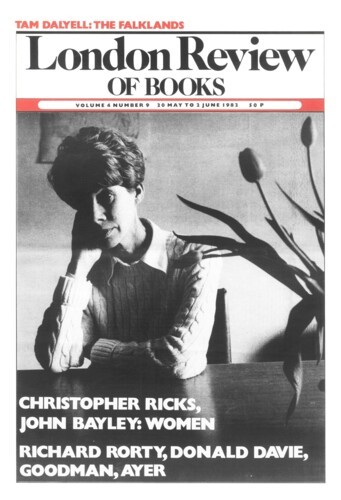The imagination is always worth defending, and is usually in need of defence. But it is not always clear what or whom it needs to be defended against. Some might think, for instance, that the imagination is always under threat from the people who, twenty years ago, ‘extrapolating from trends’, judged that ‘the steady increase since the war in the numbers in sixth forms, and in those getting good results in their A-level examinations, would continue.’ But for Helen Gardner, who served at that time on the Robbins Committee on Higher Education, those confident extrapolators of trends figure cosily enough as ‘our statisticians’; and she is not assailed by any suspicion that she, as representing the literary imagination on that committee, might have been expected to distrust these predictions, on the grounds that desire for higher education, and the capacity to profit by it, might imaginably depend on factors less quantifiable than a post-war baby-bulge. The imagination that Dame Helen would defend is indeed a brisk and businesslike person, public-spirited, good on committees; it could hardly be mistaken for a creature of the same name defended long ago by William Blake.
The imagination is always worth defending, and is usually in need of defence. But it is not always clear what or whom it needs to be defended against. Some might think, for instance, that the...




